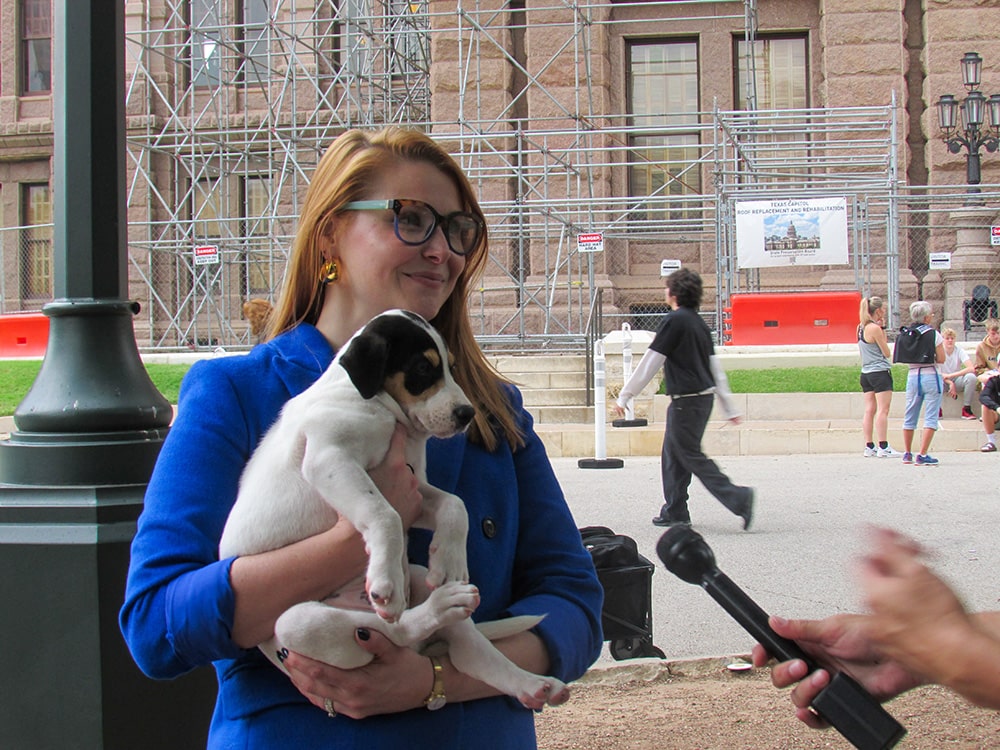
(AUSTIN, TX) November 7, 2023–Human Animal Support Services (HASS), an international project revolutionizing the animal welfare industry by uniting the human and animal welfare approach, announced today its 2024 policy platform and agenda including the prioritization of the following policy initiatives: increasing equitable access to pet-inclusive housing and affordable veterinary care, expanding federal Supplemental Nutrition Assistance Program (SNAP) benefits to include pet food, as well as addressing the way animal shelter conditions affect animal welfare professionals’ mental health.
“We are deeply passionate about collaborating with local, state, and federal policy makers because we know this is where actionable change takes effect,” says Vincent Medley, Director of HASS. “Having a dedicated policy team take a data-driven and proactive approach, allows the HASS project to be among the first within the industry to merge policy initiatives that focus on both people and pets to promote community growth and empowerment.”
Developed by the HASS policy team, the goal of the 2024 HASS policy agenda is to craft and advocate for laws that not only put the human-animal bond at the center, but aim to create a supportive framework for community-centric animal sheltering and mitigate the existing systematic challenges that can perpetuate negative outcomes for people and pets. All priority initiatives were formulated utilizing the HASS Community Values Survey (CVS) preliminary results and existing research on the relationship between animal welfare laws and systemic racism, classism and the resulting inequities impacting communities.
According to 2021 U.S. census data, nearly 44 million Americans can not afford to own a home and instead rent. Half of all renter households are housing-cost burdened, meaning they spend greater than 30% of their monthly income on housing, with Black and Hispanic/Latino renters disproportionately impacted. In addition, access to veterinary care continues to decline throughout the U.S. and is especially difficult in communities with predominantly impoverished and BIPOC groups. More than statistics, however, these challenges are the daily experience for a growing number of the population. The HASS policy team seeks to address these challenges on a legislative level by, among other specific initiatives, supporting the increased access to pet-inclusive rental housing in both market-rate and subsidized affordable housing in well-resourced and high-opportunity communities, addressing issues related to access to veterinary care caused by the nationwide veterinary shortage, and encouraging animal welfare organizations to reduce, eliminate or waive fees related to impoundment and redemption for all pet owners who would face financial hardships.
In addition, the HASS policy team has identified an increased need to support the expansion of SNAP benefits to include pet food. This federal program provides food benefits to low-income families to supplement their grocery budget and have better access to nutritious food essential to health and wellbeing. HASS believes this program should include access to pet food and will prioritize legislative support initiatives to lobby for this inclusion and mitigate the common occurrence of families having to relinquish their pet due to food insecurity.
Lastly, a study conducted by the American Journal of Preventive Medicine revealed the mental health crisis within animal welfare continues to reach unprecedented levels. In fact, animal welfare professionals have the highest suicide rate among American workers; a rate shared only by first-responders such as police officers and firefighters. HASS recognizes that there is a severe mental health crisis among staff at animal shelters largely due to the difficult operational conditions, which is exacerbated by chronic underfunding of animal services. To create a support network for this chronic issue, HASS policy initiatives will call for the support among all local shelters and rescues to work with their governments to increase animal shelter budgets, awareness of the mental health crisis in the animal sheltering community, and access to mental health support for animal shelter staff and field services officers.
“The 2024 HASS policy agenda is a roadmap designed to promote progress toward a more equitable and unified system of support within human and animal welfare,” said Lauren Loney, head of the HASS policy team. “We genuinely believe in the democratic process and the collective responsibility in working with local, state, and federal governments to make our communities a more sustainable and supportive place for families to live in 2024 and beyond.”
The HASS policy team consists of tenured government relations and legal advisors actively working to advocate for the rights of people and pets alike. With expertise in policy development, government affairs, and the legislative process, the policy team is at the pulse of efforts associated with some of the nation’s leading community-centric legislative initiatives such as the PUPP Act. In addition, the HASS policy team has built some of the industry’s leading government relations support resources for animal welfare organizations to implement such as the Government Communication Guide and the HASS State Legislation Tracker.
For more information on the full 2024 HASS policy agenda, visit www.humananimalsupportservices.org.
###
About Human Animal Support Services (HASS):
The Human Animal Support Services (HASS) project is a movement seeking to revolutionize the animal welfare industry by leading with and embracing a community support model. By providing both private and municipal animal shelters with equitable access to data-driven resources, education, and implementation tools, HASS aims to create pathways toward unified support systems for pets and their people in every community. Separated into three main pillars education, data, and policy, HASS encompasses a network of more than 1,500 animal and human welfare professionals. A project facilitated by Austin Pets Alive! (APA!) and under the direction of industry veteran Vincent Medley, HASS’ 41 pilot shelters and 165 partner organizations have joined the movement by committing to implement the HASS model. To learn more, visit www.humananimalsupportservices.org.
Source: Human Animal Support Services












